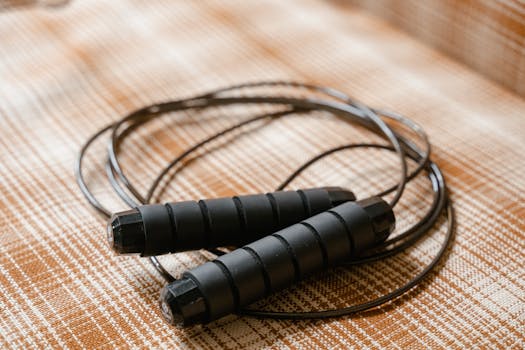Navigating the Stages of Menopause: A Comprehensive Guide
Nov 21, 2024
Menopause is a natural milestone in a woman's life, marking the end of her reproductive years. While it's a universal experience, the journey through menopause is highly individual, with each woman encountering her own unique set of challenges and changes. Understanding the stages of menopause can empower women to navigate this transition with confidence and maintain their overall health and well-being.
The Three Stages of Menopause
Menopause is a process divided into three distinct phases: perimenopause, menopause, and postmenopause. Each stage brings its own physiological changes and symptoms.
1. Perimenopause
Perimenopause is the transitional period leading up to menopause, often beginning in a woman's 40s but sometimes as early as the mid-30s. During this phase, the ovaries gradually produce less estrogen, leading to hormonal fluctuations. Common symptoms include:
Irregular menstrual cycles
Hot flashes and night sweats
Sleep disturbances
Mood swings and irritability
Changes in libido
Being aware of these symptoms can help women anticipate the changes and seek support or treatment options to manage them effectively.
2. Menopause
Menopause is officially diagnosed when a woman has not had a menstrual period for 12 consecutive months. The average age of onset is around 51, but it can vary. Symptoms during this stage may intensify due to lower estrogen levels and can include:
Increased frequency of hot flashes and night sweats
Vaginal dryness and discomfort during intercourse
Sleep problems
Emotional changes, such as depression or anxiety
Physical changes, like weight gain or thinning hair
It's important to recognize that the severity and duration of these symptoms can vary widely. Consulting a healthcare provider can help in managing symptoms effectively.
3. Postmenopause
Postmenopause refers to the years after menopause has occurred. In this stage, many symptoms experienced during perimenopause and menopause may lessen. However, the decline in estrogen increases the risk of certain health issues, such as:
Osteoporosis
Cardiovascular disease
Urinary tract infections
Focusing on preventive healthcare, including regular medical check-ups and lifestyle adjustments, is crucial during postmenopause to maintain long-term health.
Common Symptoms and Management Strategies
Understanding common menopause symptoms and how to manage them can significantly improve quality of life during this transition.
Hot Flashes and Night Sweats
These sudden feelings of warmth can be uncomfortable and disruptive. Management strategies include:
Dressing in layers to adjust to temperature changes
Keeping the sleeping environment cool
Avoiding known triggers like spicy foods, alcohol, and caffeine
Practicing relaxation techniques such as deep breathing or meditation
Mood Changes and Sleep Disturbances
Hormonal shifts can lead to emotional fluctuations and sleep issues. To help stabilize mood and improve sleep:
Engage in regular physical activity; exercise releases endorphins that boost mood
Establish a consistent sleep routine with relaxing activities before bed
Limit screen time before bedtime to improve sleep quality
Consider cognitive-behavioral therapy or counseling if mood changes are severe

Vaginal Dryness and Sexual Health
Decreased estrogen levels can cause vaginal dryness, leading to discomfort:
Use over-the-counter water-based lubricants or vaginal moisturizers
Engage in regular sexual activity to promote blood flow to the genital area
Discuss with a healthcare provider about possible treatments like low-dose vaginal estrogen therapy
Maintain open communication with your partner about comfort levels and needs
Lifestyle Adjustments and Hormone Replacement Therapy
Lifestyle Changes
Adopting healthy lifestyle habits can alleviate many menopause symptoms:
Balanced Diet: Consume a diet rich in fruits, vegetables, whole grains, lean proteins, and healthy fats. Include foods high in calcium and vitamin D to support bone health.
Regular Exercise: Incorporate both aerobic activities (like walking, swimming, or cycling) and strength training to maintain muscle mass and bone density.
Stress Management: Practice yoga, tai chi, or mindfulness meditation to reduce stress and improve emotional well-being.
Avoid Smoking and Limit Alcohol: These can exacerbate symptoms and increase health risks.
Hormone Replacement Therapy (HRT)
HRT can be effective for relieving severe menopause symptoms by replacing diminished hormones. However, it's not suitable for everyone. Considerations include:
Benefits: Reduction in hot flashes, night sweats, vaginal dryness, and prevention of bone loss.
Risks: Potential increased risk of blood clots, stroke, or certain types of cancer.
Consultation: A thorough discussion with a healthcare provider is essential to weigh the benefits and risks based on personal health history.
The Importance of Support and Self-Care
Seeking Professional Guidance
Professional support can make a significant difference:
Healthcare Providers: Regular check-ups can monitor changes and manage symptoms. Specialists in women's health or endocrinology can offer tailored advice.
Fitness Professionals: Personalized training programs, like those offered by Getlila's AI-powered solutions, can help maintain physical health and address specific menopause-related concerns.
Community Support and Self-Care
Connecting with others and prioritizing self-care are vital:
Support Groups: Sharing experiences with others can provide emotional relief and practical coping strategies.
Self-Care Practices: Engage in activities that promote relaxation and joy, such as hobbies, journaling, or spa treatments.
Education: Stay informed about menopause to make empowered decisions about your health.
Nutrition and Exercise for Menopause
Essential Nutrients
Focusing on key nutrients can help mitigate health risks:
Calcium and Vitamin D: Crucial for bone health; found in dairy products, leafy greens, and fortified foods.
Omega-3 Fatty Acids: Support heart health; sources include fatty fish like salmon, walnuts, and flaxseeds.
Phytoestrogens: Plant-based compounds that mimic estrogen; found in soy products, flaxseeds, and legumes.
Antioxidants: Help combat oxidative stress; abundant in fruits and vegetables like berries, oranges, and bell peppers.
Regular Physical Activity
Physical activity offers numerous benefits:
Weight Management: Helps prevent weight gain associated with hormonal changes.
Bone Strength: Weight-bearing exercises like walking or dancing strengthen bones.
Mood Enhancement: Exercise reduces symptoms of depression and anxiety.
Customized Fitness Plans: Utilizing tools like Getlila's AI personal training can tailor workouts to individual needs, ensuring safety and effectiveness.
Embracing the Journey Ahead
Navigating menopause is a highly personal experience, but you don't have to do it alone. With the right knowledge, support system, and proactive approach, it's possible to manage symptoms and continue living a vibrant, healthy life.
Getlila is here to support you with AI-powered personal training solutions designed to meet your unique needs during this transition. Our personalized programs focus on fitness, nutrition, and overall well-being, helping you embrace this new chapter with confidence and strength.
Ready to Simplify Weight Loss?
Download the Lila app or visit getlila.com to start your journey. Experience the power of an AI-driven approach designed to adapt to your changing body and unique needs. Embrace holistic weight loss with Lila—because you deserve to feel strong, confident, and truly yourself again.
Disclaimer: This article is for informational purposes only and does not substitute professional medical advice. Consult a healthcare provider for personalized recommendations.
You should not have to do it all on your own











